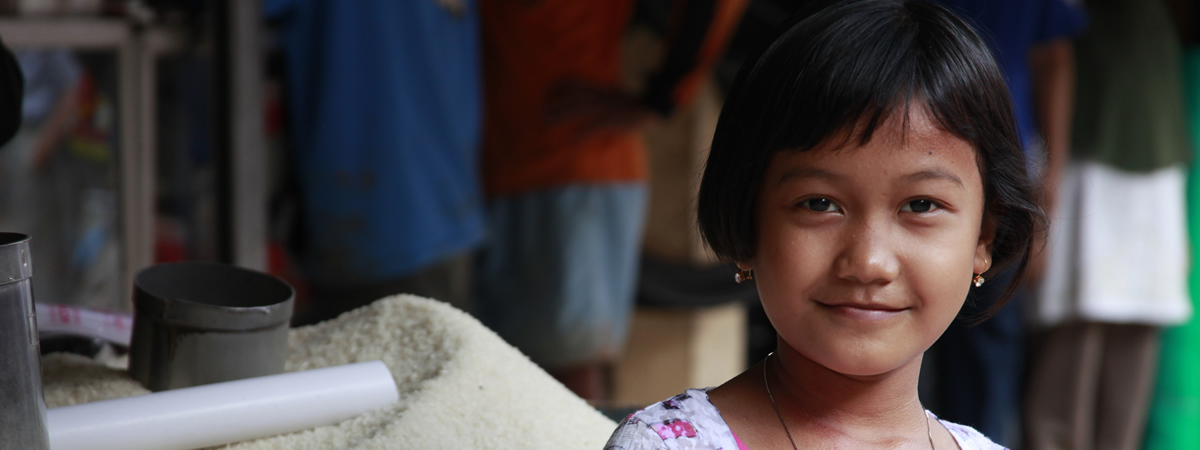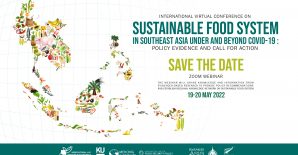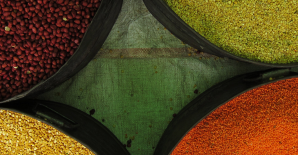News
Cherry,melon, beans, and meat from Kyrgzystan to be exported to China
(30 May 2017, 24.kg) The deputy agriculture minister explained at a press conference on May 30 that agricultural export agreements for certain products are underway with China.
Carrefour down and out in Kazakhstan
(30 May 2017, Eurasianet) French mega-retailer Carrefour is closing down its three outlets in Kazakhstan, just 16 months after their ballyhooed opening in Almaty in February 2016. Carrefour heads cited the depreciation of the national currency and the intensity of local competition as reasons for its unsuccessful venture. The article notes, however, that the Kazakh tenge actually strengthened by approximately 14 percent during Carrefour’s time in the country, making Carrefour’s currency explanation somewhat puzzling.
Prices for produce soar in Tajik capital ahead of Ramadan
(29 May 2017, Asia Plus) Prices for potatoes, tomatoes, peppers, and meat are reportedly increasing in Dushanbe markets ahead of the holy month of Ramadan. Local authorities are taking measures to increase food supplies in the capital and to exempt merchants from fees in response. It bears mentioning that no suggestion is made in the article regarding the effect of Ramadan on the local demand for food.
Eleven irrigation facilities to be built in Kyrgyzstan this year
(24 May 2017, 24.kg) The Kyrgyz government will launch the construction of 11 irrigation facilities, four of which will be commissioned by the end of the year. The head of the water resources department claimed that they will provide 4,200 jobs and some will replace idle Soviet-era facilities.
Analysis and Other Information
Listening to Tajikistan: Survey of wellbeing
(25 May 2017, World Bank) The World Bank released information from its L2TJK survey, a monthly survey monitoring households’ subjective wellbeing in Tajikistan since May 2015. According to a review covering the first 24 rounds of the survey, food security is a major driver of subjective wellbeing. This is an especially important point for Tajikistan because reported life satisfaction is otherwise much higher there than would be expected based on traditional GDP measures compared to other Europe/Central Asia region countries. The analysis focuses on household-level changes across time and attempts to identify the drivers for those changes.
ADB expert: Gini coefficients need to be considered with a healthy degree of skepticism
(26 May 2017, Asia Plus) An ADB economist argues that Gini coefficients understate the degree of inequality in the Central Asia and Caucasus regions. Lyaziza Sabyrova, the principal regional economist for the Central and West Asia Regional Department, writes in an ADB blog post that the Gini coefficient overlooks wealth inequality, which is difficult to measure in Central Asia and the Caucasus. Moreover, social perceptions of growing inequality in these countries run counter to Gini indicators suggesting the opposite. The high incidence of labor migration, which could mitigate social tension and poverty, can also make accurate readings of inequality difficult in the regions.
White House proposes slashing U.S. programs in Caucasus, Central Asia
(26 May 2017, Eurasianet) On May 23, the U.S. State Department released a budget proposal to Congress for 2018 fiscal year funding that would enact sharp cuts to assistance programs in the Caucasus and Central Asia. Georgia and Kyrgyzstan will see cuts of 57 percent and 64 percent each, while programs in Azerbaijan, Kazakhstan, and Turkmenistan will be virtually eliminated. These countries will still receive aid through the U.S. Department of Defense and it is highly unlikely that lawmakers will actually agree to the size of the cuts outlined in the proposal, though observers say it is a telling sign of the Trump administration’s reduced intentions in the Caucasus and Central Asia.
Kyrgyzstan, Tajikistan greatly dependent on migrant labor
(28 May 2017, Times CA) Migrant remittances from Russia to Kyrgyzstan recorded an all-time high in the first three months of 2017 at $433 million, breaking the previous mark of $412 million over the same period in 2013. The increase in remittances was largely due to Kyrgyzstan’s accession to the Eurasian Economic Union. On the other hand, the number of migrants from non-EAEU member Tajikistan to Russia nearly halved between 2012 and 2017. A recent labor migration survey conducted in Tajikistan showed that many migrants returned home because of a lack of job opportunities in Russia. The article remarks that agricultural productivity has increased significantly since 2014, possibly due to the increase in male labor and increased investment from China.
Trade between Eurasian Development Bank member countries recovers in Q1 2017
(29 May 2017, Times CA) Trade between EDB member countries – including Kazakhstan, Kyrgyzstan, and Tajikistan – has increased in the first quarter of 2017 compared to the same period in 2016, owing largely to the stabilization of raw material prices and national exchange rates. Migrant remittances to Kyrgyzstan have increased 54 percent in the same reference period. However, the EDB review cautions, however, that raw material markets can become volatile again in the near future and the member countries are becoming more exposed to fluctuations in oil prices. Armenia, Belarus, and Russia are members of the EDB in addition to the three aforementioned Central Asian countries.
Central Asian integration: more real than ever?
(30 May 2017, Astana Times) This article comments on the flourishing of ties among the five Central Asian countries, attributing some of the growing rapport to the new Uzbek presidential administration’s diplomatic outreach. Relations between the Central Asian countries have been fraught with tension since independence as they found themselves at odds on a number of issues, especially over the sharing of water resources. While regional experts believe integration is a stretch, closer cooperation would at least allow the countries to tackle their immediate challenges.
Events and Calls for Papers
International Conference on Agriculture, Food Security, and Nutrition in Eurasia
May 26, 2017 in Moscow, Russia. Organized by the Eurasian Center for Food Security at Lomonosov Moscow State University, International Food Policy Research Institute, World Bank, and the IFPRI-led CGIAR research programs Agricultural for Nutrition and Health (A4NH) and Policies, Institutions, and Markets (PIM). Conference concluded on May 26, more information forthcoming.
Annual ‘Life in Kyrgyzstan’ Conference
October 12-13, 2017 in Bishkek, Kyrgyzstan. Organized by Institute of Public Policy and Administration of the University of Central Asia (UCA), Stockholm International Peace Research Institute (SIPRI), Leibniz Institute of Vegetable and Ornamental Crops (IGZ), International Food Policy Research Institute (IFPRI), International Security and Development Center (ISDC), and the Food and Agriculture Organization of the United Nations (FAO). Deadline to submit papers is June 15, 2017. Deadline to register is September 15, 2017.
Archived issues of the news digest can be found on the Central Asia page under the ReSAKSS Asia website: http://resakss-asia.org/regions/central-asia. A link to the newsletter can be found under Blog Posts.
The articles included in this news digest have been generated from online sources. Any opinions stated herein are not representative of, or endorsed by, the International Food Policy Research Institute or its partners.



